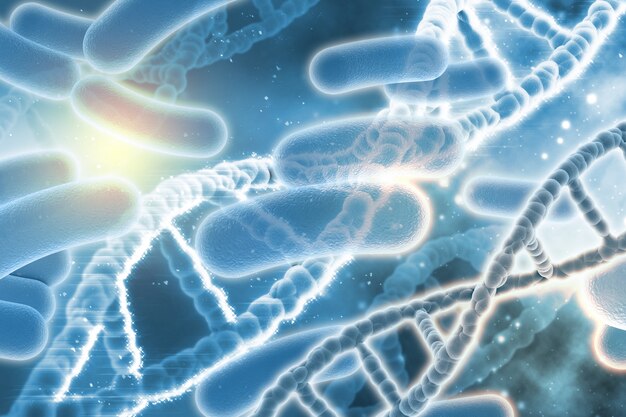
Ever thought about the friendly bacteria in your gut? Let’s talk about Probiotics vs. Prebiotics: What’s the Difference? Imagine you’ve got superheroes in your belly—it’s a lot like that, but with a twist.
Probiotics are the good guys keeping your gut happy, while prebiotics are their sidekicks, helping them thrive. Confused? No worries, we’ll simplify it for you. Get ready to uncover the secrets of these gut buddies and see why they’re so important for your health!
First, let’s understand the microbiome. Our gut is home to trillions of microorganisms forming a complex ecosystem. This includes bacteria, viruses, fungi, and other microbes that live in balance. This diverse community is crucial for many body functions, from digestion to immune system regulation.
Probiotics are often seen as the superheroes of the microbial world. These are live microorganisms, mostly bacteria, that offer health benefits when consumed in the right amounts. Not all bacteria are bad; in fact, our gut needs a good dose of the helpful ones to work well. Probiotics, found in fermented foods like yogurt, kefir, and sauerkraut, add to the beneficial bacteria in our gut. They maintain a balance between good and harmful bacteria, enhancing the diversity of the microbiome. This helps with better digestion, nutrient absorption, and a stronger immune system. Probiotics may also ease digestive issues like irritable bowel syndrome (IBS) and even mental health conditions like anxiety and depression.
Now that you know about probiotics, let’s talk about prebiotics. Unlike probiotics, prebiotics are not living organisms. They are non-digestible fibers that serve as food for the beneficial bacteria in the gut. Prebiotics help probiotics flourish. These fibers are found in foods like garlic, onions, bananas, and whole grains. They selectively stimulate the growth and activity of good bacteria, promoting a healthy microbiome. By feeding the beneficial bacteria, prebiotics contribute to improved gut health, nutrient absorption, and the production of essential short-chain fatty acids.
Think of probiotics and prebiotics like dancers and music. Probiotics are the dancers keeping the balance, and prebiotics are the music providing the rhythm and energy. Together, they create a symphony of gut health. Consuming both is crucial for their symbiotic relationship. While probiotics introduce helpful bacteria, prebiotics ensure these organisms have the nourishment they need. This leads to a diverse and resilient gut environment.
For prebiotics, add foods like garlic, leeks, asparagus, and oats to your diet. Including a mix of these foods ensures both probiotics and prebiotics in your gut are well-fed. Incorporating them doesn’t have to be hard. Yogurt, kefir, kimchi, and miso soup are excellent sources of probiotics. A balanced gut can positively affect metabolic health, cardiovascular function, and mental well-being, highlighting the necessity of nurturing our gut ecosystem.
To keep your gut in good shape, balancing probiotics and prebiotics is key. Overloading on either can cause discomfort. Gradually introducing them allows your gut to adjust naturally. Consult a healthcare professional before starting supplements to find the right dosage for your needs.
Bioma is a health supplement that combines prebiotics, probiotics, and postbiotics in one pill. This mix helps maintain a balanced gut by promoting the growth of good bacteria. The prebiotics in Bioma provide food for the good bacteria, the probiotics are live beneficial bacteria, and the postbiotics offer extra benefits like supporting your stomach lining and boosting your immune system. Bioma simplifies the process of nurturing your gut health.
In the world of gut health, probiotics and prebiotics each play crucial roles. Probiotics are the friendly superheroes that guard your gut, while prebiotics are the food that keeps these heroes strong. It’s like having a dynamic duo for a healthy belly. So next time you enjoy yogurt with live cultures or snack on fiber-rich foods, know that you’re nourishing your gut team. Balance is the key to a happy, superhero-filled gut adventure!
Is it best to take probiotics and prebiotics? Yes, combining both can support a healthier digestive system and overall well-being, as probiotics help maintain healthy bacteria, and prebiotics promote their growth.
What are the three types of prebiotics? Prebiotics are mainly inulin, oligosaccharides, and resistant starch. Inulin is in foods like bananas and garlic, oligosaccharides in onions and leeks, and resistant starch in green bananas and cooled potatoes.
Who needs to take a probiotic? Probiotics can benefit those who have taken antibiotics, as they can disrupt gut bacteria balance, or individuals with digestive issues like IBS and weakened immune systems.